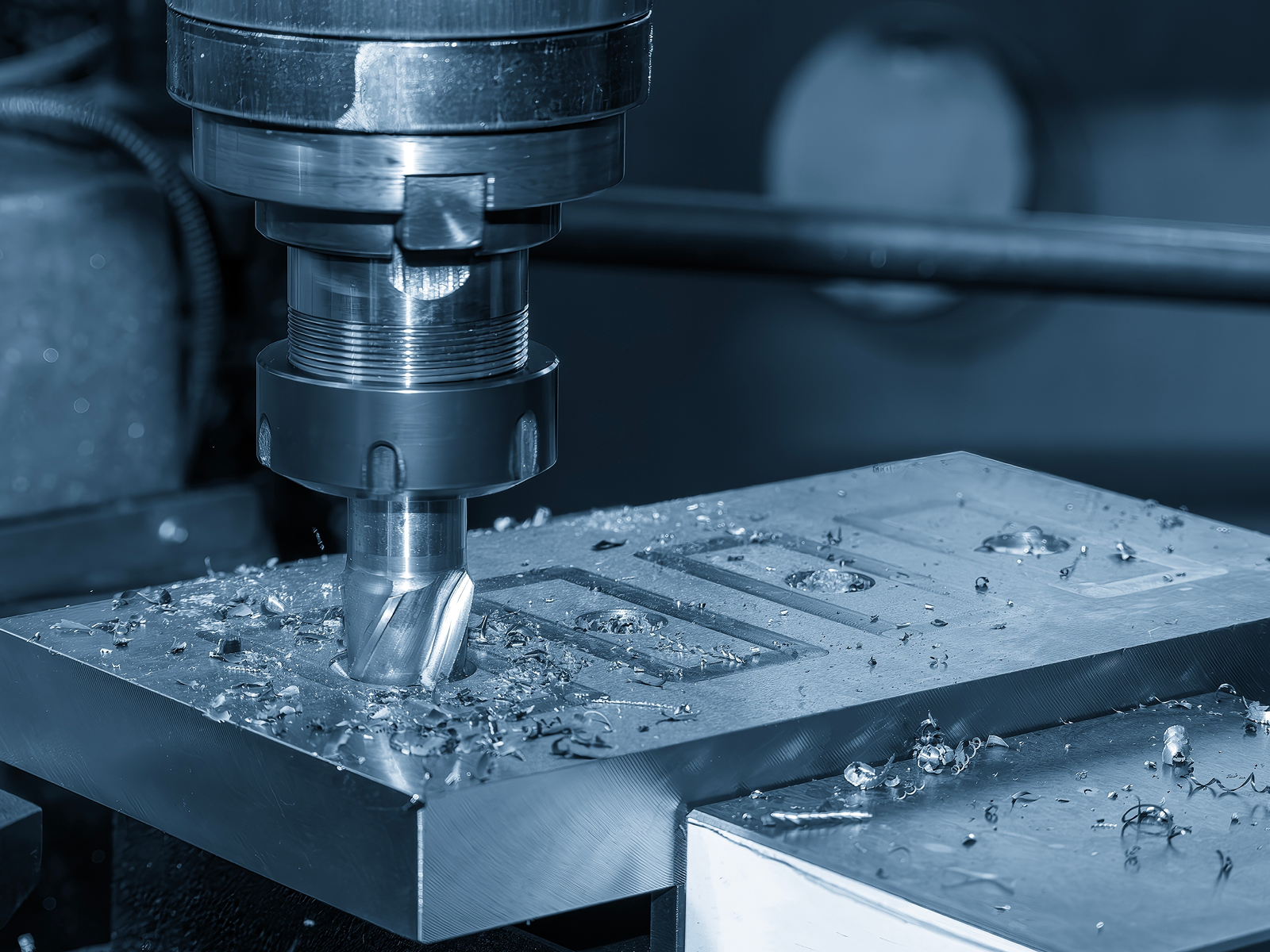FFKM O-Rings At Work in Critical Applications
Downtime is rapidly getting more expensive. In the automotive sector alone, the cost of an unplanned shutdown has reached $2.3 million per hour. Across industries, that number continues to rise. In heavy industry, the cost of downtime is now four times what it was just five years ago.
When systems fail, the root cause often can be traced back to a component that didn’t hold up under pressure—literally. Seals are one of the smallest parts in a system, but when they fail, the consequences are wide-reaching. Leaks, contamination, pressure loss, or missed cycles can bring everything to a halt.
That’s why the materials behind those seals matter. Standard elastomers often fall short in applications that run hot, handle aggressive media, or operate under high pressure. FFKM—perfluoroelastomer—is used in these environments because it performs where others don’t.
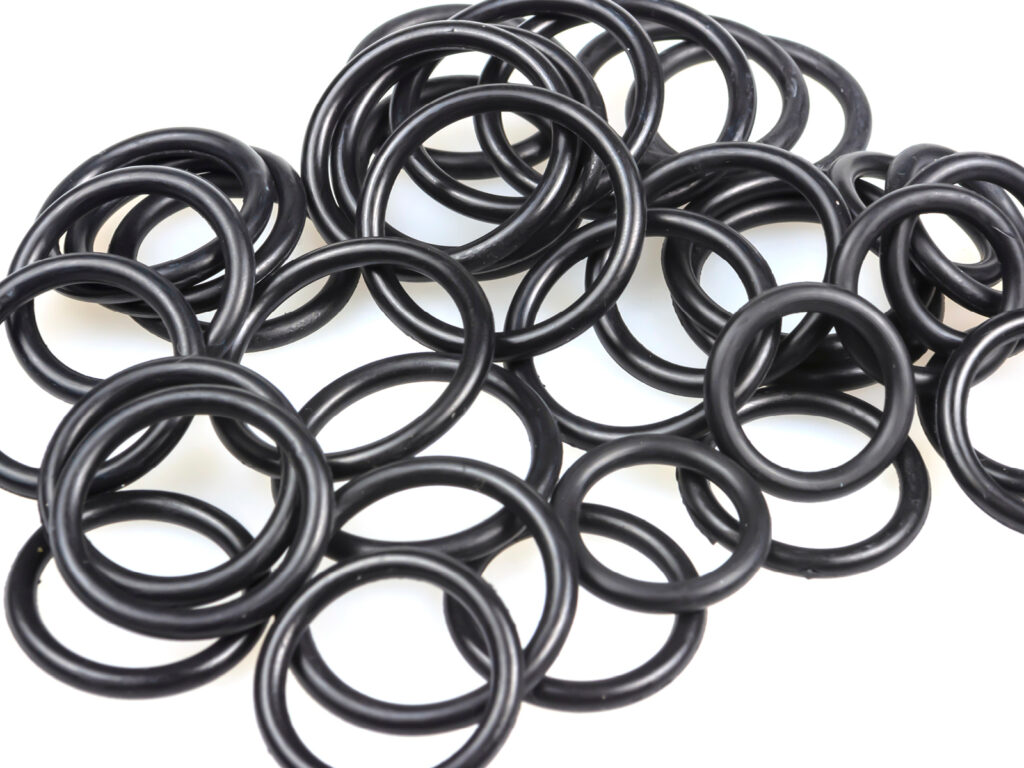
What Is FFKM?
FFKM is a kind of perfluoroelastomer, which is a class of high-performance sealing materials used in environments too extreme for most elastomers. Think heat, chemicals, pressure, and exposure that would break down common materials like Viton®, silicone, or nitrile. FFKM is often chosen when nothing else will hold up.
Chemically, FFKM is similar to PTFE (like Teflon®), but it’s fully fluorinated and has elastomeric properties. This gives it the best of both worlds: resistance to more than 1,800 chemicals and solvents, plus the flexibility of a rubber seal.
The standout feature of FFKM is its temperature resistance. Depending on the formulation, it can handle operating conditions as low as -49°F (-45°C) and as high as 635°F (335°C). It’s also nonflammable in air, ozone-resistant, and nonporous. That means it resists gas and liquid permeation, a must in vacuum or high-pressure applications.
FFKM also performs well under mechanical stress. It offers low compression set, excellent sealing under dynamic movement, and long-term resilience under both static and cyclic pressure. Some grades are even designed to handle explosive decompression.
For engineers and buyers in industries like aerospace, pharmaceuticals, and chemical processing, FFKM is the trusted solution for mission-critical sealing. Its durability and chemical resistance make it a reliable choice in those critical conditions.
FFKM in Comparison to Other Materials
The operating environment usually decides when choosing a sealing material. To help make the decision, you must compare FFKM to other commonly used elastomers in critical areas like chemical resistance, temperature stability, and mechanical performance.
Viton (FKM)
Viton is known for good chemical and heat resistance. It is widely used in automotive and industrial settings. However, it starts to degrade in extremely high temperatures and isn’t compatible with hot water or steam and many aggressive chemicals like ketones, amines. FFKM is more chemically resistant and handles much higher temperatures.
PTFE
PTFE offers outstanding chemical resistance and is non-reactive in many environments. It performs well under heat, but it’s rigid and prone to cold flow, making it a poor choice for dynamic sealing. FFKM retains many of PTFE’s chemical strengths while offering the elasticity needed for sealing under motion or pressure.
EPDM
EPDM is effective in steam, water, and certain polar chemicals. It performs well in outdoor environments but is not compatible with petroleum oils or fuels. Its temperature range is limited compared to FFKM, and it lacks the same level of resistance to harsh chemicals.
Nitrile (Buna-N, NBR)
Nitrile is commonly used for its resistance to oils and fuels. It’s a lower-cost option but degrades quickly when exposed to ozone, weathering, or a wide range of industrial chemicals. It also has limited temperature resistance. FFKM far outperforms nitrile in durability and chemical compatibility.
Silicone
Silicone remains flexible in both high and low temperatures and is used often in food, medical, and consumer products. Its weakness is chemical resistance. In most industrial applications, it fails quickly when exposed to oils, fuels, and aggressive media. FFKM is better suited for those conditions.
While each material has its place, FFKM stands out when both chemical exposure and high temperature are factors. It’s often selected not because it’s the only option, but because it’s the most reliable one when failure carries a high cost.
Why Use FFKM?
FFKM is the premier solution for critical operations that operate in extreme conditions.
High Temperature Resistance
FFKM compounds maintain performance across extreme heat, with some grades operating up to 635°F (335°C) without losing sealing integrity.
Broad Chemical Compatibility
With resistance to over 1,800 substances, FFKM is suited for contact with aggressive solvents, acids, and other harsh media.
Low Permeability
The nonporous structure of FFKM limits gas and liquid transmission, which helps maintain pressure and purity in sensitive systems.
Outdoor and Environmental Stability
Formulations resist damage from ozone, sunlight, and weather, making FFKM dependable in exposed or fluctuating environments.
Flame Resistance
FFKM materials won’t burn in air and can self-extinguish when the ignition source is removed.
Low Outgassing
Minimal extractables and volatiles make FFKM a strong choice for vacuum or cleanroom applications.
Reliable Mechanical Performance
These elastomers hold their shape under pressure and return to form, even after long compression or dynamic motion.
Resistance to Rapid Decompression
Special formulations can endure sudden pressure drops, reducing the risk of internal cracking or seal failure.
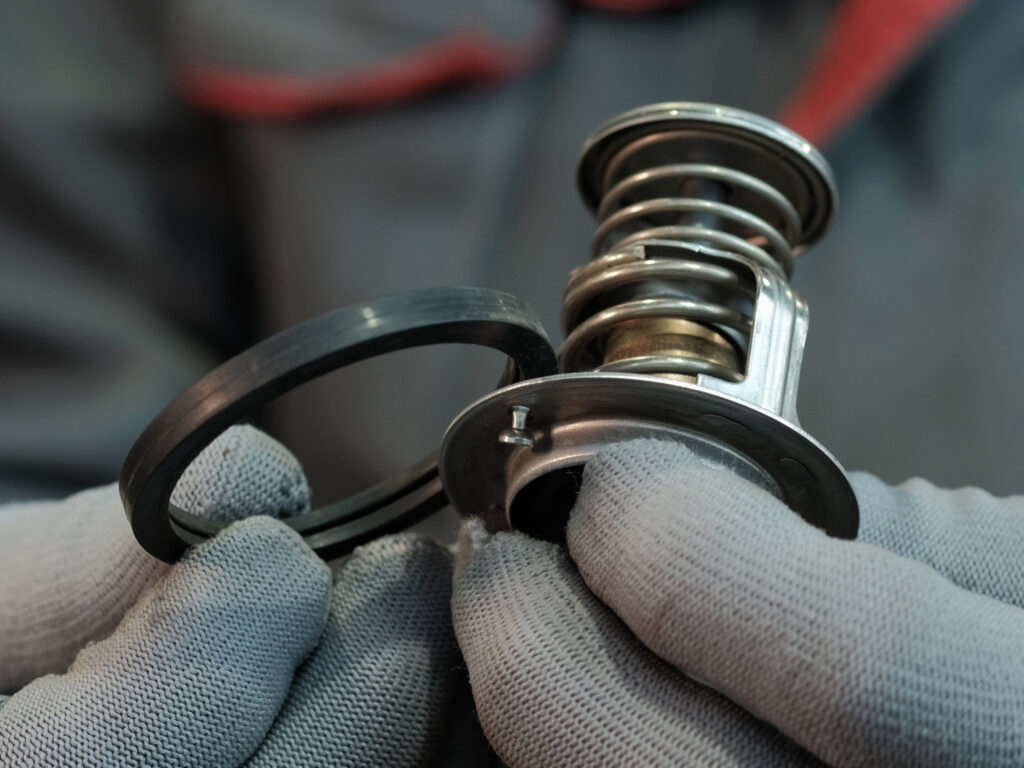
Common Seal Failure Modes
Understanding why seals fail helps guide better material selection. These are some of the most common failure modes found in high-demand applications.
Chemical Degradation
Aggressive media like acids, fuels, or solvents can break down the seal material over time, leading to swelling, softening, or surface cracking.
FFKM’s broad chemical resistance reduces the risk of degradation across various corrosive environments.
Thermal Degradation
Prolonged exposure to high temperatures can cause hardening, shrinking, or brittleness, which often results in leakage.
FFKM compounds are rated for continuous use in elevated temperatures, helping maintain sealing performance under thermal stress.
Extrusion and Blowout
Under high pressure, some seals deform into small gaps in the hardware. Without reinforcement or the right material properties, this can cause rupture.
FFKM materials have high modulus and excellent recovery properties, helping resist deformation under pressure.
Compression Set
After being compressed for extended periods, some seals lose their ability to rebound. This permanent deformation can prevent a tight seal.
FFKM’s low compression set allows seals to return to form after long static or dynamic cycles, maintaining the seal over time.
Swelling and Absorption
Certain materials absorb fluids or moisture, causing them to expand or change shape. This often leads to misalignment or loss of sealing force.
FFKM is nonporous and resists fluid absorption, keeping its shape and performance even in wet or reactive environments.
Plasma or UV Damage
In semiconductor or medical settings, seals may be exposed to plasma or ultraviolet light. This exposure can break down elastomers that aren’t designed to handle it.
FFKM formulations offer low outgassing and stability under ionizing energy, making them suitable for cleanroom and plasma-exposed applications.
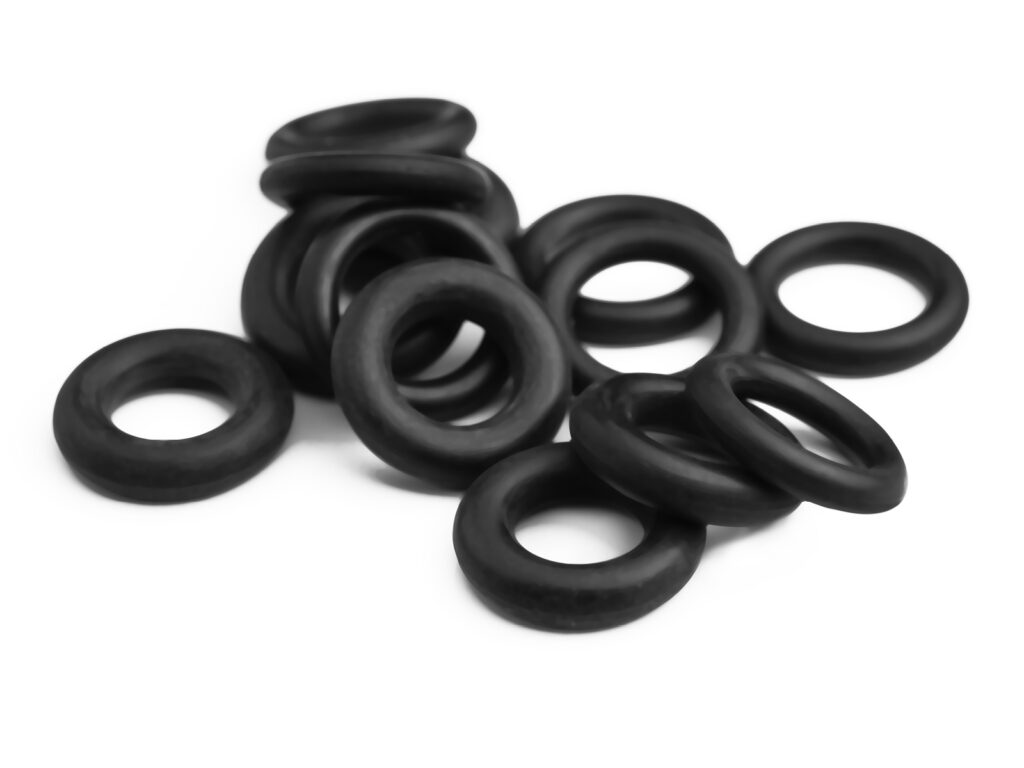
Meet Markez®: Affordable FFKM Without Losing Quality
Markez® is Marco Rubber & Plastics’ proprietary FFKM. It is designed for high-performance sealing in demanding environments. Each grade is formulated to meet specific operational challenges.
One of the best things about Markez® is its combination of affordability and flexibility. Markez® is highly customizable and available at a fraction of the cost of competing FFKMs, but it matches them in quality every step of the way.
Markez® is also available in a wide range of compounds, with further customization options available.
Z1028
A general-purpose FFKM that balances chemical resistance, high temperature tolerance (up to 608°F), and cost. It’s used across industries, including chemical processing, semiconductor, and aerospace, where broad compatibility is required. We stock almost all AS568 sizes at Marco, so you can get it quickly.
Z1352
Formulated for strong resistance to acids and hot amines, Z1352 is used in oil and gas, semiconductor, and industrial applications where harsh chemicals and elevated temperatures are routine. It’s known for long-term reliability and dynamic sealing performance. We stock Z1352 in almost all AS568 sizes for ease of access.
Z1400
An ultra-high temperature compound with low compression set and strong chemical resistance. With a continuous service range up to 635°F, Z1400 performs in prolonged thermal exposure where other seals degrade, particularly in semiconductor and processing equipment. We keep Z1400 in stock in almost all AS568 sizes at Marco.
Z1403
This grade is cleanroom-manufactured and optimized for high-temperature semiconductor processes. It offers low outgassing, low etch rates, and chemical compatibility across a broad range of plasma and wet chemistries. It’s typically used in plasma etch, litho, and CVD systems.
Z1422
A white, non-cleanroom compound certified to USP Class VI and ISO 10993-5. It’s made for pharmaceutical and food processing environments, particularly for gaskets in SIP/CIP systems. Z1422 is compatible with aggressive cleaning agents and high-purity media. Z1422 is used in our FFKM tri-clamp gaskets for ultimate cleanliness.
Z2000
Markez® Z2000 is the most thermally resilient compound in the line. Built with a patented catalyst system, it holds its shape and properties in extreme heat over long periods. It also offers excellent resistance to fluorine-rich and oxidative plasma environments. With low outgassing and a clean degradation profile, Z2000 is well suited for semiconductor tools and harsh chemical service.
All in-stock compounds fall under our OTIF guarantee: all in-stock orders are shipped on time, in full, and within 24 hours of the order being placed.
Industries That Count on Markez®
Markez® compounds are running in real systems, solving real problems. Across industries, they’ve been chosen for environments where other materials fail and reliability isn’t optional.
Aerospace
In airborne laser systems, Markez® has been used where seals sit directly in the laser path. The material needed to stay dimensionally stable, resist heat, and avoid absorbing or scattering the beam. Markez® met all three requirements. In another case, an aerospace company needed gaskets manufactured to tight tolerances on a fast timeline. After another supplier walked away from the challenge, Marco delivered with consistent performance and engineering support.
Medical
Medical device designers have relied on Markez® in both optical and mechanical components. One laser-based diagnostic tool needed a seal that would remain clear and stable during repeated thermal cycling. In another application, a miniature piston used for drug delivery had to maintain smooth motion, tight tolerances, and long lifecycle performance. Markez® enabled both without compromising regulatory compliance.
Pharmaceutical and Chemical Processing
Chemical injection systems often face rapid seal wear from high-pressure solvents. In one such system, Markez® was used in a dual-seal arrangement that combined chemical resistance with mechanical stability. Another pharmaceutical application needed seals that could withstand caustic cleaners and sterilization agents, plus be available on a faster lead time than traditional FFKMs. Markez® checked all three boxes.
Industrial Equipment
Industrial users have turned to Markez® when legacy materials began to fail under pressure or temperature extremes. One high-pressure vessel ran above 500°F and operated at 20,000 psi. A custom seal made from Markez® held up under those conditions. Another manufacturer needed a mold seal that would survive repeated heating and chemical contact without breaking down or losing form. With Markez®, the tool gained longer life and better throughput.
These scenarios are representative of the kinds of problems engineers face every day. In each case, Markez® provided a practical sealing solution that worked under pressure, held up over time, and fit the spec.
Why Engineers Choose Markez®
Engineers don’t spec a material unless it fits the environment, the design, and the business case. Markez gets chosen because it fulfills those needs.
It offers the chemical resistance and thermal stability expected from a premium FFKM, with pricing that makes it usable at scale. That opens the door to more applications where FFKM-level performance was previously out of reach.
The line includes multiple grades, so users can match the compound to the conditions. If an engineer needs a seal exposed to direct plasma, a gasket in a cleaning process, or a dynamic part moving through thousands of cycles, Markez® has a solution. That range gives engineers flexibility without needing to compromise on reliability.
Availability matters, too. Markez® compounds are backed by application support, traceability, and production capacity that’s built for speed. For teams with tight deadlines or shifting production schedules, that is a powerful combination to keep projects on track.
The reason engineers keep coming back to Markez® is simple: it performs in the field, not just on paper.
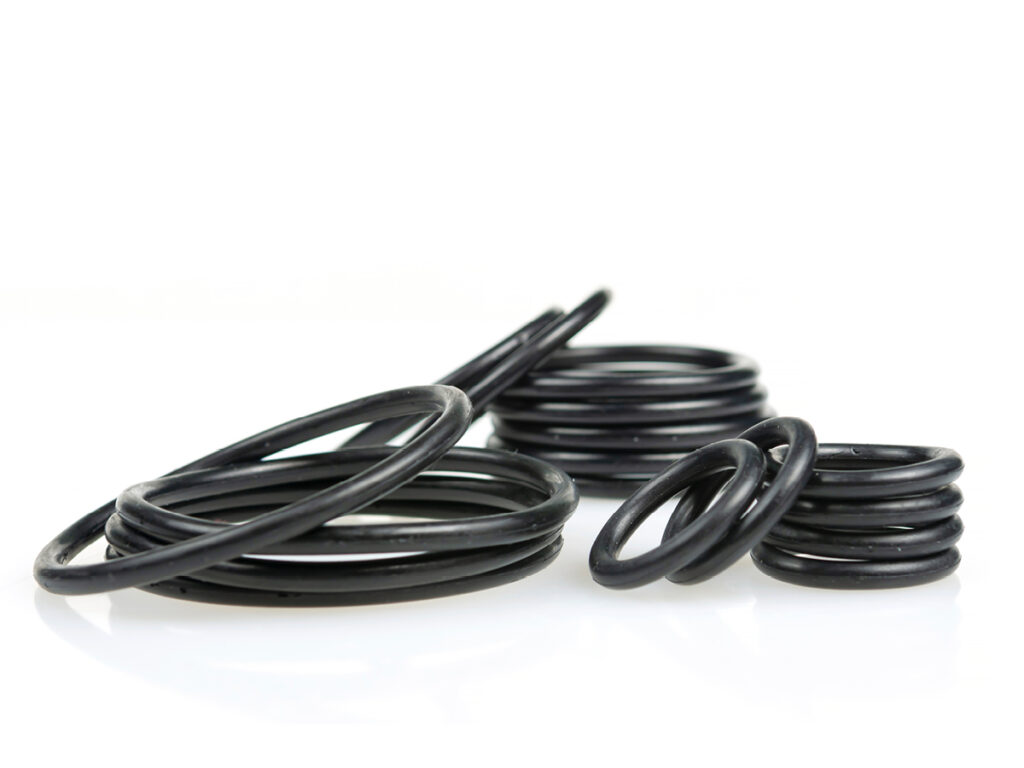
When Failure Isn’t an Option … Markez® Is
The FFKM market is growing steadily as more industries turn to high-performance materials for sealing in harsh environments. Verified Market Research projects the market will expand from $8.1 billion in 2024 to $14.4 billion by 2031, with a compound annual growth rate of 6.1%.
That growth means sourcing these materials is becoming more competitive. Engineers who rely on FFKM should be thinking ahead. This is about more than performance; it is about availability, lead time, and long-term supply.
Markez® offers a range of FFKM compounds developed to meet demanding sealing needs across aerospace, medical, industrial, and chemical systems. Each grade is supported by application guidance and flexible fulfillment options.
Learn more about Markez® and see how it fits into your next project.
